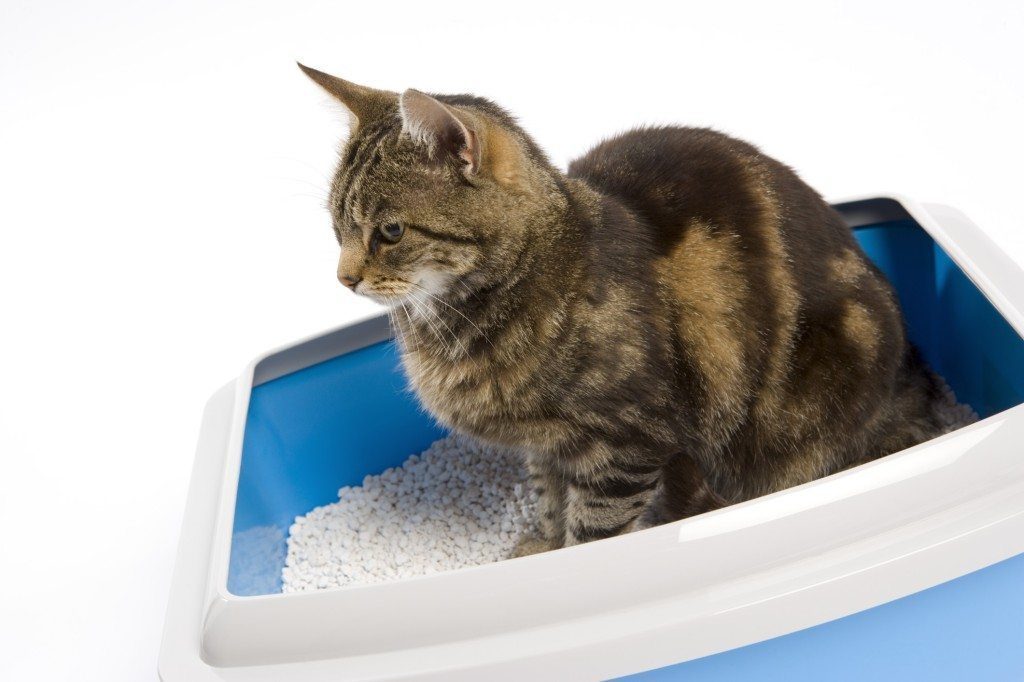 Have you ever changed the litter box and wondered if inhaling that dust is unhealthy? Curious cat owners want to know – is cat litter dangerous for humans.
Have you ever changed the litter box and wondered if inhaling that dust is unhealthy? Curious cat owners want to know – is cat litter dangerous for humans.
Intestinal Issues:
This can be caused by parasites and bacterial infections that the cat might be carrying and they can found in the cats feces. Exposure to these parasites, roundworms and bacterial infections can come for direct contact with the feces or from the soiled and contaminated litter.
Asthma and Allergies:
Jim Hanophy, CEO of Operation Kindness, the oldest and largest no-kill animal shelter in North Texas says, “Generally, most cat litter products are safe. However, if the litter has clay or perfume, some people could be allergic to those components. Sometimes, cats can be allergic to them too.” When changing the litter box if you use the traditional clay you will notice a lot of dust rising up from the box. This happens when your cat uses the litter box and scratches the litter. There are reputable anecdotal pieces of evidence of cat owners having severe asthma attacks after this, though not a lot of scientific studies. Not only can you generate a severe asthma attack from the dust from the cat litter you use, so can your cat. Keeping the litter box clean helps, but it is the type of litter you use that really makes the difference.
How to Avoid Asthma Attacks, Allergies and Intestinal Issues from Cat Litter:
It’s all about the type of cat litter you choose. Hanophy advises, “Check ingredients. Also, there are hypoallergenic litters made for cats. “Yesterday’s News” is made from paper. There are also other brands that reduce allergens.” Buy cat litter that is fragrance free, scoopable, biodegradable, flushable, and not clay-based. Avoid clay-based litter, pine litter and sawdust-based cat litter. Don’t trust the brands that promise to be free of dust – they might be – but they also contain chemicals that might be cancer causing according to the International Agency for Research on Cancer. The particles in this litter get into your cat’s fur and on her paws and then tracked around the house where humans can become exposed. In addition to the cancer risk there is a much milder risk of respiratory infections. If you have intense asthma, respiratory infections can be particularly dangerous.
Toxoplasmosis:
This is the major danger to humans from litter boxes and cats in general. Toxoplasmosis is caused by a parasite in the cat feces. It can also be caused by any fecal contamination or by exposure to some raw meats such as lamb. It is estimated that up to one third of the world’s population carry the toxoplasma infection and parasite. It is one of the most common parasites in the world. It is often found in cat feces and so the litter box is a definite area of exposure. This is not a fatal disease for most people. Most people will not have much problems with toxoplasmosis, but it can cause flu-like symptoms and an extreme fatigue. Most people will never know they are carrying it because they will have no symptoms.
For pregnant woman and anyone with a compromised immune system, the toxoplasma parasite can cause all kinds of issues and diseases not the least of which is encephalitis, issues with the eyes, inner ears, liver and heart, and neurological diseases. It has also been linked in recent studies to psychological disorders such as ADHD, OCD, and schizophrenia. There is also a link to suicidal behavior.
Which Cat Litter Is Best for Your Pet?
There are a lot of different types of cat litter on the market. All of which are basically safe for healthy people. Those who have compromised immune systems and pregnant women need to avoid the chore of changing the cat box. Avoid the pine, sawdust and clay. Stick to cat litter that’s scoopable, fragrance-free, flushable, and biodegradable. Use quart-sized zippered plastic bags to bag up the clumped urine and feces you scoop up and zip it closed. Wash your hands thoroughly after changing your cat’s litter.
See Also – Best Cat Litter For Your Pet
Photo: Thinkstock









